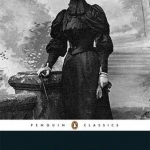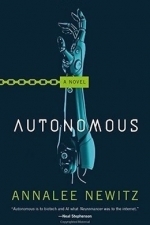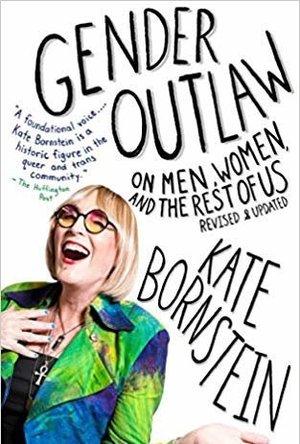
Search for Cheap Flights by SkyRadar
Navigation and Travel
App
Find and book cheap air tickets with no fees. Cheap flights Pro App will compare airfares from...
Hazel (1853 KP) rated What We Left Behind in Books
Dec 7, 2018
Gretchen and Toni are high school sweethearts who believe they will be together forever, but will they cope being apart at different universities? Toni is off to Harvard and Gretchen to New York where they plan to meet up every weekend however things get in the way, and not just coursework.
The main theme of<i> What We Left Behind</i> is sexual orientation and gender. Both Gretchen and Toni are attracted to girls, however Toni identifies as genderqueer. Throughout school, this never bothered Gretchen, though when Toni begins feeling a connection with a group of transgender students, Gretchen begins to question her position in Toni’s life.
Unlike Talley’s previous novel <i>Lies We Tell Ourselves</i>, which deals with ethnic minorities and homosexuality during a time when it was seen as completely unacceptable, <i>What We Left Behind</i> is set in the present day where peoples’ sexual preferences are accepted in society – mostly. What Talley is attempting to prove with this novel is that everyone, regardless of gender, can experience love, and that long distance relationships can be difficult for everyone. Most importantly this story expresses how difficult it is to understand trans sexuality, genderqueer, gender nonconforming etc. There are characters that are horrified by the idea, comfortable with it, or, like Gretchen, confused about how it effects themselves and their relationship. And then there is Toni. Toni is probably the most confused of all: who is s/he really?
Talley tries to make the reader experience the difficulties the main characters face with the use, or lack of pronouns. For someone who identifies as neither he nor she, Toni has a very hard time trying to find a label Toni feels comfortable with.
I did not enjoy <i>What We Left Behind</i> as much as <i>Lies We Tell Ourselves</i>, not because it was not good – it was – but I am not that into romance novels. After a while the story began to feel boring and repetitive, particularly in terms of Gretchen and Toni’s relationship. It is, however, worth a read. There are not many novels that focus on transgender issues, especially in such a positive way. Therefore I am sure this young adult novel is going to interest a large amount of readers.

Lonely Planet Russia
Lonely Planet, Simon Richmond, Marc Di Duca and Marc Bennetts
Book
Lonely Planet: The world's leading travel guide publisher Lonely Planet Russia is your passport to...

The Krio of West Africa: Islam, Culture, Creolization, and Colonialism in the Nineteenth Century
Book
"The Krio of West Africa: Islam, Culture, Creolization, and Colonialism in the Nineteenth Century,...
Mandy and G.D. Burkhead (26 KP) rated Poison Study (Study, #1) in Books
May 20, 2018
The first trilogy, comprised of Poison Study, Fire Study, and Magic Study, follows Yelena Zaltana. The second series, also called the Glass series, follows her friend Opal Cowan in Storm Glass, Sea Glass, and Spy Glass. The final trilogy, Shadow Study, Night Study, and Dawn Study, is where things get a bit odd. Maria V. Snyder had thrown in a few short stories/novellas throughout from different characters’ points of view. Perhaps she got bored of just sticking to one POV, or maybe fans wanted more from the other characters, so the third trilogy is from Yelena’s POV in first person and the POV’s of multiple characters (mainly Valek, Leif, and Janco, with a few others popping in from time to time) in third person.
I’m not sure which editor thought it would be a good idea to have POV switch from first person to third person in the same novel, but—yikes—is it jarring. Even with the wonky POV stuff in the third trilogy, these books are amazing and absolutely worth your time to read. Snyder’s world-building is compelling, detailed, and original. The books take place mostly between two pre-industrial countries: Ixia and Sitia. Ixia is a post-revolution country ruled by Commander Ambrose. His personal body guard and assassin is Valek. In the first novel Yelena is in prison for murder and is offered the choice to be the Commander’s food taster in exchange for her life. She agrees, and throughout the first book she and Valek begin to fall in love.
Ixia reminded me a lot of Communist Russia or China. In its attempts to throw away the corrupt government and society that came before, it has also thrown out all culture in the process. The country has been re-divided into districts with numbers instead of names, everyone is forced to wear a uniform, all art and extravagance has been destroyed, people have to have passes to travel between districts, and magic is forbidden. Anyone born with it is killed (or so the reader is led to believe). But Maria V. Snyder does a wonderful job of showing the good with the bad in this totalitarian dictatorship. Everyone has a job and nobody goes hungry, women are now equal to men, and violence and sexual assault are intolerable. This is why Yelena ends up in prison in the first place: she murdered the man that raped her. Now, this is probably my first major gripe with the series. We learn that Commander Ambrose loathes sexual assault and will execute anyone found guilty of it, but apparently killing a rapist in self-defense is also an executable offense. And all of that being said, Ambrose still has his own personal assassin. It all feels a bit contradictory, but again, that’s what I like about this series: it does an excellent job of peeling back the layers of her fictional societies and pointing out that governments and people in power tend to be hypocritical.
Now, the series name (or rather one of them) is Chronicles of Ixia, but honestly, it should have been called Chronicles of Sitia, because that is where most of the story takes place and is by far the more interesting and vibrant country. Sitia is part jungle, part desert, and full of magic. The peoples are divided into multiple clans or tribes that are all unique and compelling. In the second book, Yelena flees to Sitia after the Commander learns she has magic, and there she finds the family she was kidnapped from as a small child. They are part of the Zaltana clan, a group of people that live high in the trees in the jungle. Whenever I read about them, I would have to remind myself that they were not wood elves or dryads, because while there is magic in these books, there are no fantastical creatures: all characters are human or animal.
Another fascinating tribe is the Sandseeds, a group of nomads in the desert known for two major things: breeding super smart horses and having Storyweavers. The Storyweavers are people who have the magical ability to see the future and guide others, but who have to do it really cryptically because reasons (I appreciate that this gets pointed out by an annoyed Yelena multiple times). And of course, the Sandseed horses are fantastic; they choose their rider and able to mentally communicate with magical people. They even have their own horse names for people that they like.
Besides the different clans throughout Sitia, there is also the capitol, the Citadel, which is home to the magic school and the Sitian Council. While very different from Ixia, Sitia is by no means perfect. Its Council epitomizes everything annoying and dysfunctional about a bureaucracy. While the council members are elected and come from every clan in Sitia, they are at best useless and at worst actively impede the main characters.
The magic school is interesting, though the story doesn’t actually spend much time there. I like how magic was done in this series: it usually runs in families, most people with it have control over one or two things (ie. fire, mind-control, telepathy, etc.), but those who have the ability to master more can become Master Magicians after enduring a daunting trial. Magic is bound in people’s blood, so blood magic is a thing and is obviously bad, and magic (and a person’s soul) can be stolen using an intricate and gruesome blood ritual that involves prolonged torture, rape, and then murder.
The power blanket is another interesting concept used in this series. Essentially is resides over the entire world and is the essence of magic, so magicians can pull from it to augment their own magic. However, if they pull too much and lose control, they can flame out, killing themselves and temporarily damaging the blanket in the process. I thought this was a good literary tool to prevent magical characters from being too OP (at least most of the time).
I especially like the romantic relationships in this series. Valek and Yelena are of course the main couple. In the first book they fall in love, in the second book they get separated, and throughout the series they regularly cross paths and save one another. Yelena and Valek are heartmates, and as the series progresses they both have to mature and learn how to trust one another. My biggest complaint about the romance is that all sex scenes are just fade to black, which I personally find a bit boring.
The other major romantic relationship is between Opal and Devlen. This one was a bit awkward. Opal actually goes through a couple of guys first: a stormdancer named Kade and another glassmaker named Ulrick. And I really liked that the author included this. Many people have multiple partners before finding their soulmate, and a woman who does is not a slut. Her relationship with Devlen, however . . . Well, she’s a more forgiving person than me.
You see, it turns out that Devlen is the man who kidnapped Opal a few years earlier and tortured her because he was trying to steal her magic. But he didn’t actually enjoy torturing her and never raped her, which I guess makes it better? Well, he manages to switch bodies with Ulrick and, as Ulrick, tricks Opal into dating him, then, when he’s discovered, kidnaps and tortures her (again) to gain more power. But then she steals his magic, he spends some time in prison, and the combination of the two miraculously turn him into a good guy, claiming that magic is what made him evil in the first place.
I’m going to be honest, I didn’t completely buy his redemption arc even at the end of the third book in the Glass series, but by the ninth book they’re still together and he’s on the good guys’ side, so I guess it was real. And I have definitely watched/read much worse evil asshole to boyfriend stories. At least Devlen genuinely feels guilty for the horrible things he did in the past and attempts to make up for them, and in her defense, Opal has to do a lot of soul-searching before she can find it in her to forgive and trust him, and even more before she can develop romantic feelings for him (that aren’t based on deception, anyway). Also, Ulrick becomes a huge jerk because of his newfound magical abilities, tries to kill Opal, and later gets assassinated by Valek. I appreciate what Maria V. Snyder is trying to do here, which is to teach through her storytelling how good people can become evil, and evil people can redeem themselves and be good. Their romance was uncomfortable to read, but it was supposed to be uncomfortable, because that’s how all parties involved felt.
Now, let’s talk about Commander Ambrose. Towards the end of the first book, Yelena discovers that Ambrose is a female to male trans person. This is revealed to be why Ambrose hates magicians so much: he is afraid that one of them will read his mind and then reveal his secret (which is how Yelena discovers it). After I read the first book, I was really pleased that Snyder did such a good job of depicting a trans person, as that’s really only a small part of his character, and those who know (mainly Valek and Yelena) don’t make a big deal out of it.
And then . . . I really wish that the author would have just left the issue of the Commander being trans alone. Yelena discovers it in the first book, she keeps it to herself because it’s nobody else’s business, the end. But by creating this weird intricate background to explain why Ambrose is trans, Snyder just kind of shoots herself in the foot.
Throughout the rest of the series, I kept hoping for some other LGBTQ+ characters to show up to redeem the blunder with Ambrose. I actually believed that Ari and Janco were a gay couple for the longest time, what with their banter and often being referred to as partners. However, if this was the author’s intention, it was never really explicitly stated, and the partner thing just seems to refer to them being partners in combat and nothing else.
Goddess in the Stacks (553 KP) rated Autonomous: A Novel in Books
Dec 22, 2018
Meanwhile, Eliasz is a conflicted military agent who is sexually attracted to robots. Or at least to his partner, Paladin, though a flashback shows what might have been the start of his attraction to robots. Paladin is probably the single most interesting character in the entire book, as she muses on the nature of being indentured, and searches through her memories and the internet for information about her situation.
The book does have LGBT content - Jack is bisexual, and Eliasz is - robosexual? Is that a thing? Paladin could be called nonbinary or trans; she repeatedly mentions that gender isn't a thing to robots, but because she's a military robot, most people call her a he at the beginning of the book. She learns the brain inside her is female, and to make Eliasz more comfortable with his attraction, she decides to use female pronouns. Eliasz does use the F word to refer to himself being attracted to the robot at the beginning, when they were using male pronouns. This puzzles Paladin for a while, causing her to search the term and figure out what Eliasz meant by its use.
There's a lot of complex world-building in this book that is barely brushed past. From the corporations who own patents covering everything, to the system of indenture that covers humans as well as robots, to the bio-domes that cover cities (but it's livable outside the biodomes, so why are they needed?), to the new federations that cover continents that used to be divided into several countries - there's a LOT going on. And there's not just robots, but also some pretty advanced cybernetics implanted in humans as well as an everpresent network of data that can be tapped into with implants that everyone has.
Ultimately, for as complex as the world is, and cohesive as the plot is, I'm left wondering who, if anyone, was in the right in this story. I'm not sure if we're supposed to be happy with the ending or not. I've seen other reviews saying Neuromancer was a way better book in a similar vein, and I actually have copy of that waiting to be read. So we'll see.
You can find all my reviews at http://goddessinthestacks.com
Goddess in the Stacks (553 KP) rated Gender Outlaw: On Men, Women and the Rest of Us in Books
Jul 23, 2019
"Now, if anything you read in this book makes you feel bad or wrong or small and weak, then please know that I said something wrong. This book was written many years ago, and the culture I wrote it in is not the culture in which you're reading it. So, if you find anything to be personally insulting, please accept my apology and keep reading with the knowledge that your identity and how you express your gender are correct only when you feel they are correct."
It was a wonderful note to start the book on. I just loved "if you are offended, if this invalidates your identity, then I AM WRONG." Bornstein transitioned in the 80s, and has been an outspoken advocate of queer and trans people most of her life. She is definitely a figure in queer history that more people should read about.
The rest of the book is every bit as good as the foreword. Bornstein absolutely destroys the concept of gender in this book, dissecting it and looking at all the parts and pieces to attempt to figure out why society is so set on the binary system. She more than makes her case that gender is a spectrum, not an either/or. And not just a spectrum between "more male" and "more female" but a colorful kaleidoscope of gender expression and identity. She does not shy away from sensitive topics like surgeries and anatomy. She talks to the reader like she's your favorite outrageous aunt, sitting in the family room gossiping over heavily-spiked tea.
The formatting was occasionally confusing; she has the usual justified text, but then she has left-aligned passages (usually quotes from other people) and right-aligned passages (side-bar like content; I'm unclear if these are notes she made on the original text or what, but it generally clarifies or alters what the main text is talking about.)
I would HIGHLY recommend this book for anyone who wants to learn more about gender issues. Bornstein has an incredibly entertaining way of writing, and she loves to challenge what we think of as gender.
You can find all my reviews and more at http://goddessinthestacks.com
Aesthetics: A Reader in Philosophy of the Arts
Book
Aesthetics: A Reader in Philosophy of the Arts, 4th Edition contains an extensive selection of...

Travels in West Africa: the Classic Account of One Woman's Epic and Eccentric Journey in the 1890s
Mary H. Kingsley and Lynnette Turner
Book
A remarkable account by a pioneering woman explorer who was described by Rudyard Kipling as 'the...

Grindr - Gay chat
Social Networking and Lifestyle
App
Grindr is the world’s #1 FREE mobile social networking app for gay and bi guys to connect. Chat...



